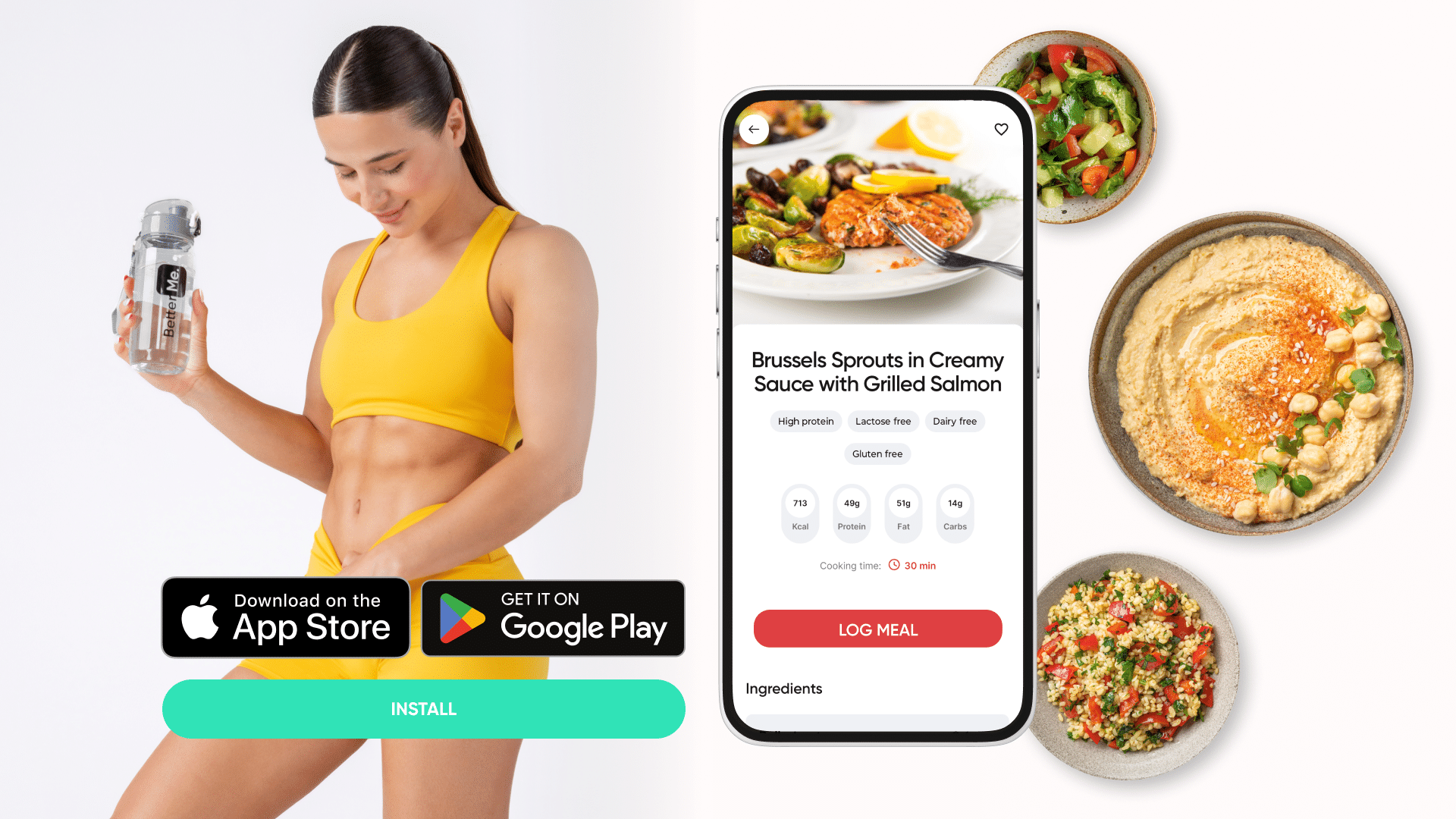Eat during certain hours, fast during certain hours; sounds simple and straightforward, right? But for those who are just hopping on the intermittent fasting (IF) bandwagon, there’s bound to be many questions. How to survive the hunger pangs that are totally testing your willpower would probably top the list.
One of the most common queries that arise is whether or not you can have your beloved cup of joe while fasting. After all, coffee seems to be the lifeline for so many of us! The good news is, you don’t have to give up your morning ritual just yet.
Coffee, when consumed in moderation and without certain enhancers, can actually be a friendly companion during your fasting window. But there are a few caveats to consider. We answer all your IF and coffee questions below.
Will Drinking Coffee Break My Fast?
Whether drinking coffee breaks your fast depends on what’s in your cup. Drinking it black and unsweetened? No effect as far as breaking your fast. In fact, this version is highly recommended. Drinking coffee with cream? That would definitely cause a spike in calories and risk breaking your fast. Essentially, drinking coffee will break your fast if:
- You add any source of calories: Coffee with cream, milk, sugar, or any sweetener contributes to calorie intake, which can disrupt the fasting state.
- You use flavored syrups: Flavored syrups often contain sugars or artificial sweeteners that can spike blood sugar levels and break your fast.
- You consume bulletproof coffee: While popular in the keto community, bulletproof coffee made with butter or coconut oil adds significant calories and may hinder the benefits of fasting.
- You drink large quantities: Excessive coffee consumption can lead to an increase in cortisol levels, potentially impacting fasting benefits (7).
- You have coffee with protein powder: Protein powder can trigger an insulin response, affecting fasting goals.
- You consume coffee with high-glycemic foods: Pairing coffee with high-carb foods can cause an increase in blood sugar, breaking the fast.
Remember, the purpose of fasting is to restrict calorie intake and allow your body to enter a metabolic fasting state. This means any additions to your cup of joe could hinder your fasting goals.
If you wish to free yourself from all the extra pounds that have been weighting you down for way too long, start using the BetterMe app and overhaul your entire life!
Benefits Of Black Coffee While Fasting
Drinking black coffee on an empty stomach is recommended by some intermittent fasters for several reasons. They claim that one of the primary benefits of consuming black coffee while fasting are its appetite suppressant properties. Additionally, it is said to stimulate thermogenesis, kick-starting metabolism and fat burning.
Appetite Suppression
Black coffee may be a natural appetite suppressant, which can be immensely beneficial during fasting hours (2). The caffeine in black coffee might influence the production of leptin, a hormone that signals your brain when you’ve had enough food.
By suppressing your appetite, black coffee can make the fasting periods more manageable, helping you keep cravings at bay.
Some studies have suggested that coffee may increase the satiation you feel from a meal, and this is a useful tool in maintaining a calorie deficit during fasting (5).
Stimulation of Thermogenesis
Black coffee stimulates thermogenesis, causing your body to generate more heat and burn more calories (12). This increase in metabolism may help to enhance the fat-burning benefits of your fast.
The caffeine in black coffee may also enhance physical performance, so coffee before a workout can be particularly beneficial if you’re incorporating fasted workouts into your routine (11).
Enhanced Cognitive Function
Drinking black coffee while fasting can also enhance cognitive function. The caffeine in coffee blocks an inhibitory neurotransmitter in the brain called adenosine (1).
Coffee and caffeine intake have been linked with improved memory, mood, energy levels, and general cognitive function.
Rich in Antioxidants
Black coffee is rich in antioxidants, which can have a variety of health benefits. Regular consumption of coffee may help fight inflammation in the body, and may lower the risk of various diseases such as heart disease and cancer (4).
When consumed during fasting, the antioxidants in black coffee can also help to combat oxidative stress, which may promote better overall health and longevity.
Read more: 7 Tips for Making the Perfect Cup of Intermittent Fasting Coffee
What Can I Put In My Coffee While Fasting?
Black unsweetened coffee isn’t palatable for everyone. If you’re struggling to drink it plain, you may be wondering what you can put in your coffee during a fast.
It’s true that the strictest form of fasting calls for only water, black coffee, and tea, but there are a few additions that may not completely derail your fasting goals, depending on the type of fast you’re observing:
- Cinnamon: Adding a sprinkle of cinnamon to your black coffee can provide a subtle, natural sweetness and aroma without adding any calories. Coffee with cinnamon benefits you may enjoy include regulation of blood sugar levels (3).
- Stevia or monk fruit sweetener: Stevia and monk fruit sweeteners are calorie-free, natural sweeteners that can add a hint of sweetness to your coffee without breaking your fast. They have minimal impact on blood sugar levels and are considered safe for most people.
- MCT oil: MCT (medium-chain triglyceride) oil is a type of fat that is rapidly absorbed by the body and can be converted into energy. Adding a small amount of MCT oil to your coffee may increase satiety and provide a source of energy during your fast. However, be cautious with the quantity as excessive MCT oil may break your fast due to its caloric content.
Remember, these additions are only suitable for those following less strict fasting methods. For those adhering to stricter fasts, black, unsweetened coffee remains the best choice. Your specific goals, the type of fast you’re following, and how your body responds should guide your choices.
Can You Drink Coffee With Milk While Intermittent Fasting?
Yes, you can drink coffee with milk while intermittent fasting. However, you should save it for your feasting/feeding window. The idea here is to minimize your calorie consumption during the fast, and later maximize nutrient intake during your eating periods.
When it comes to intermittent fasting coffee with milk, the key is moderation and timing. During your fasting window, it’s best to stick to black, unsweetened coffee. Any form of milk, including full-fat, semi-skimmed, or skimmed, contains calories and therefore has the potential to disrupt your fasting state. If you really can’t do without milk in your coffee, consider having it during your eating window.
Similarly, if you’re someone who likes their coffee sweet, intermittent fasting coffee with sweetener should be restricted to your eating window. Artificial sweeteners, though calorie-free, may still affect insulin levels, and it’s best to consume them during your feasting window to avoid any potential disruptions to the fasting benefits.
For those looking at plant-based milk alternatives, intermittent fasting coffee with oat milk is also acceptable during your feasting window. Oat milk, while richer and creamier than some other plant-based milks, contains calories and carbohydrates and should be consumed during your eating window to maintain the fasting state.
Finally, regarding intermittent fasting coffee with cream, the same principle applies. It’s all about timing. Cream, being high in fat and calories, should be used during your feasting period to avoid interfering with your fasting state.
So, while these additives can enhance your coffee experience, they should ideally be saved for your feasting window to reap the full benefits of intermittent fasting.
Yanking yourself back in shape has never been so easy with our game-changing fitness app! Start transforming your life with BetterMe!
What Drinks Don’t Break a Fast?
Proper hydration during a fast can change your experience from a grueling endurance test to a manageable and rewarding journey.
Below is a list of drinks that won’t break your fast and can contribute to your overall health and wellbeing.
Water
The simplest and most vital beverage to consume while fasting is water. It’s free of calories and plays a crucial role in every bodily function. Water assists in removing toxins from the body, supports metabolism, and aids in digestion (14).
Besides, staying hydrated combats feelings of hunger and helps maintain energy levels. For the best effect, try to drink at least eight glasses of water a day. You can also add a squeeze of fresh lemon or lime for a bit of flavor without breaking your fast.
Green Tea
Green tea is an excellent beverage choice during a fast, due to its minimal calorie content and rich nutrient profile. It’s packed with antioxidants, specifically catechins, which are thought to enhance weight loss by improving fat oxidation and boosting metabolic rate (8).
Drinking green tea can also keep your hunger pangs at bay while providing a soothing effect. You can enjoy green tea hot or cold, but always make sure to consume it unsweetened to maintain your fasting state.
Black Coffee
As mentioned earlier in this guide, black coffee is a fasting-friendly beverage as long as it’s consumed unsweetened. It is rich in antioxidants and might help support your metabolism, enhance fat burning, and increase your energy levels.
Plus, the caffeine in coffee may act as an appetite suppressant, which can be helpful during fasting periods. Just remember to consume in moderation to avoid increasing cortisol levels.
Bone Broth
Bone broth is a nutrient-dense liquid made by simmering animal bones and connective tissues. While it does contain some calories, it’s generally acceptable in small amounts during a fast due to its high nutrient content and its ability to curb hunger (9).
It’s rich in minerals that support the immune system and contains proteins and amino acids like collagen, glutamine, glycine, and proline. Bone broth can be enjoyed hot at any time of the day.
Apple Cider Vinegar
Apple cider vinegar (ACV) is another excellent drink option while fasting. Dilute one to two tablespoons of ACV in a glass of water and enjoy it as a refreshing and hydrating beverage.
ACV might help control blood sugar levels and promote feelings of fullness (13). Just remember to always dilute it to protect your teeth from the vinegar’s acidity.
Herbal Tea
Herbal teas, like chamomile or peppermint tea, are another great choice during fasting periods. They are calorie-free, soothing, and may provide various health benefits (10).
For instance, chamomile is known for its calming effects and is often used to improve sleep quality, while peppermint is thought to aid digestion. Enjoy herbal teas hot or cold, but always unsweetened if you are fasting.
Read more: 20 Coffee With Cinnamon Benefits You Wish You Knew Earlier
Frequently Asked Questions
Can I Have Cream in My Coffee While Intermittent Fasting?
Yes, you can have cream in your coffee while intermittent fasting, but only during your feasting/feeding window. Cream has high fat and calorie content, which can disrupt your fasting state if consumed outside your feeding window.
Can I Drink Coffee with Sugar During Intermittent Fasting?
No, it is not advisable to drink coffee with sugar during your fasting window in intermittent fasting. Sugar adds calories to your coffee, which can break your fast. If you prefer sweet coffee, enjoy it during your eating window.
Can You Drink Coffee While Water Fasting?
During a water fast, the idea is that you only consume water for a set amount of time. Hence, drinking coffee, even if it’s black and unsweetened, is not advisable because it deviates from the principle of only consuming water.
Can We Drink Coffee on Monday Fast?
The guidelines for Monday fasting, a specific religious practice, vary depending on individual beliefs and traditions.
Generally, it’s preferable to consume only water, and avoid any form of solid food or other beverages, including coffee. However, it would be best to consult with a spiritual adviser or religious leader to understand what is permissible during a Monday fast in your specific tradition.
The Bottom Line
Can you have coffee while fasting? Yes, you can. However, to obtain the full benefits of intermittent fasting and make sure it doesn’t impede your progress, all coffee additives (e.g., cream or sugar) should be avoided during your fasted state and only enjoyed during your feasting window.
Proper hydration is essential to a successful fast, so make sure to consume plenty of other drinks such as water, green tea, bone broth, apple cider vinegar, and herbal teas. With these guidelines in mind, you can enjoy the benefits of coffee while still reaping the rewards of your fast.
DISCLAIMER:
This article is intended for general informational purposes only and does not serve to address individual circumstances. It is not a substitute for professional advice or help and should not be relied on for making any kind of decision-making. Any action taken as a direct or indirect result of the information in this article is entirely at your own risk and is your sole responsibility.
BetterMe, its content staff, and its medical advisors accept no responsibility for inaccuracies, errors, misstatements, inconsistencies, or omissions and specifically disclaim any liability, loss or risk, personal, professional or otherwise, which may be incurred as a consequence, directly or indirectly, of the use and/or application of any content.
You should always seek the advice of your physician or other qualified health provider with any questions you may have regarding a medical condition or your specific situation. Never disregard professional medical advice or delay seeking it because of BetterMe content. If you suspect or think you may have a medical emergency, call your doctor.
SOURCES:
- Caffeine and adenosine (2020, pubmed.ncbi.nlm.nih.gov)
- Caffeine, coffee, and appetite control: a review (2017, pubmed.ncbi.nlm.nih.gov)
- Cinnamon as a Complementary Therapeutic Approach for Dysglycemia and Dyslipidemia Control in Type 2 Diabetes Mellitus and Its Molecular Mechanism of Action: A Review (2022, mdpi.com)
- Coffee consumption and health: umbrella review of meta-analyses of multiple health outcomes (2017, ncbi.nlm.nih.gov)
- Coffee, hunger, and peptide YY (2012, pubmed.ncbi.nlm.nih.gov)
- Collagen supplementation in skin and orthopedic diseases: A review of the literature (2023, ncbi.nlm.nih.gov)
- Cortisol responses to mental stress, exercise, and meals following caffeine intake in men and women (2006, ncbi.nlm.nih.gov)
- Green tea catechins, caffeine and body-weight regulation (2010, sciencedirect.com)
- Health Benefits of Bone Broth (2023, webmd.com)
- Herbal Teas and their Health Benefits: A Scoping Review (2019, pubmed.ncbi.nlm.nih.gov)
- International society of sports nutrition position stand: caffeine and exercise performance (2012, ncbi.nlm.nih.gov)
- Normal caffeine consumption: influence on thermogenesis and daily energy expenditure in lean and postobese human volunteers (1989, sciencedirect.com)
- Vinegar supplementation lowers glucose and insulin responses and increases satiety after a bread meal in healthy subjects (2005, pubmed.ncbi.nlm.nih.gov)
- Water, Hydration and Health (2011, ncbi.nlm.nih.gov)









